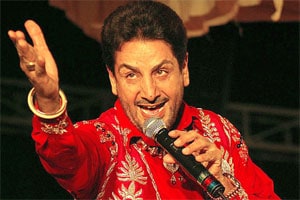
The Times, They are a Changin
Written by Suanshu Khurana | Updated: April 23, 2018 12:12:45 am ..
Written by Suanshu Khurana | Updated: April 23, 2018 12:12:45 am Madan Gopal SinghRelated News
Toona achraj gaun ji, Main roothe, piya manau ji…
When vocalist Shubha Mudgals Hindi translation of Baba Bulle Shahs qalam in Mishra Bhairavi for her album Ali More Angana (1996), made its way into Mira Nairs Kama Sutra: A Tale of Love, it came across as a beautiful musical chemistry between the lyricist and the singer. The original line in Punjabi by Bulle Shah is Ek toona achambha gaavangi. In the translation, musician and writer Madan Gopal Singh used the word achraj (surprise) instead of achambha. What worked was its phonetic similarity with two Punjabi words ajj raj (today, to the fullest), which added to the charm of the qalam. Back then, not many knew the Delhi University English literature professor, now senior fellow at Nehru Memorial Museum and Library, had written the piece.
“I grew up with literature. My father was a professor of literature and a great poet (Harbhajan Singh). So Brecht, Chekhov and Neruda were as much a part of ones life as was Baba Farid, Baba Bulle Shah and Shah Hussain,” says Singh, 67, who will present Sufi poetry today at the Bhakti Utsav in Delhi. Presented by Delhi Government and Sahitya Kala Parishad, the three-day festival opened on Saturday. Today, the evening will open with an abhang recital by Pune-based singer Pushkar Lele, and besides Singh, will also feature Kumar Gandharvas daughter Kalapini Komkali.
Singh isnt disillusioned by what Sufi has come to mean. “The appropriation of Sufi pieces may seem disappointing. It isnt to me. If somebody sings Dama dam mast qalandar, even producing it as a commodity, I will not oppose it. I will also sing it. I will bring in two principles – one, of obsessive return to the same phrase, and the other, the energy.”
Music for Singh, who is now known as the frontman of Chaar Yaar, a folk fusion outfit, didnt begin with Ustad Bade Ghulam Ali Khan or playback singer KL Saigal, like his father, a refugee from Lahore, who began living in Delhis Karol Bagh, after Partition. It started with Mohammed Rafi, a popular singer then, who was also from Punjab. “The mahaul in the house was musical,” says Singh.
He was sent to learn classical music from Surinder Singh, one half of the popular Singh Badhu. “I didnt go after the second class. I was being taught alankaar and I was more interested in the cricket outside,” says Singh, whose interest in classical music developed after he heard Pt Bhimsen Joshi and Kumar Gandharva in college. He also came in close contact with IPTA and its members such as Bhisham Sahni and Mani Kaul. He then began working in theatre and translated poems of Brecht and Neruda, making them a part of his concert repertoire. Singh has also composed the soundtrack of Khamosh Pani, written a film on the well-known Dharwad vocalist Mallikarjun Mansur, and the dialogues for Anup Singhs award-winning film.
In his concerts, Singh has never shied away from political issues because he believes that art and politics are connected. Through Chaar Yaars work, which has also tinkered with Leonard Cohen, Simon & Garfunkel, and John Lennon, Singh wants to be involved with the community. “Today the world is going through its worst possible phase. This bothers me, the way we have come to hate each other, the way we demonise communities. I am not going to stay quiet about Kathua, about various situations at this point. As an artiste, I will raise my voice. Its necessary.”
The Bhakti Utsav is at Nehru Park, Chanakyapuri, 6.30 pm onwards.
For all the latest Entertainment News, download Indian Express App
More Related News
- Tags:
- Bulleh Shah



